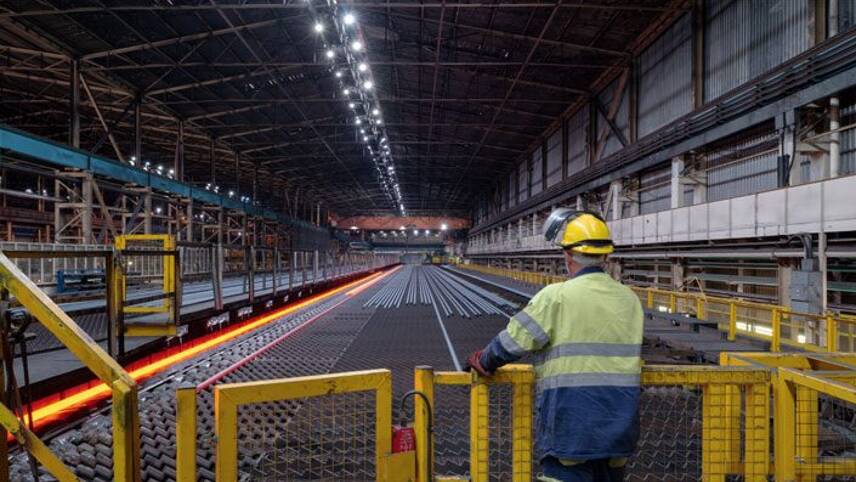Register for free and continue reading
Join our growing army of changemakers and get unlimited access to our premium content

Image: Liberty Steel
The warning is the headline of two new reports, published today (9 September) by major green business coalition the Aldersgate Group.
The first of the reports, produced with research from Frontier Economics, warns that the Government is not providing adequate clarity on the decarbonisation of industrial sites outside of business parks and clusters. The race is on, the report explains, for the creation of the UK’s first net-zero cluster – but there are concerns that dispersed sites will not decarbonise rapidly enough.
Cement, glass and ceramics facilities are more likely to be in dispersed sites than other heavy sectors, the report states. These industries are collectively responsible for some 10% of global annual emissions.
The report makes a string of recommendations for policymakers.
It argues that, following the Hydrogen Strategy’s promise for a new business model for the sector, modelled on the Contracts for Difference (CfD) auctions for renewable electricity generation, business models should also be developed for other low-carbon fuels and for carbon capture, usage and storage (CCUS).
On the demand side, the report puts forward the case for new standards for products including building materials, which could help prevent high-carbon materials from undercutting low-carbon alternatives on cost. The Government could also change its own sustainabiliy-related procurement requirements and encourage businesses to follow suit.
There are also broad recommendations for the Government to work more closely with Local Enterprise Partnerships, provide more funding and powers to local councils, and simplify the process for businesses wishing to bid for loans or grants. Loans and grants, the report states, can be crucial for businesses looking to innovate for energy efficiency and to scale up materials reuse and recycling.
Spotlight on electrification
The second of the reports, developed as part of a partnership between the Aldersgate Group and University College London (UCL), looks at how policy can help build a stronger business case for electrification in heavy industrial sectors.
A key recommendation from that briefing is ensuring that the cheapest forms of mature renewable electricity generation, such as onshore wind, achieve accelerated investment going forward. New onshore arrays were effectively banned in the UK from 2015 and early 2020, as they were excluded from the CfD process.
Other recommendations include further clarity on the long-term trajectory of carbon pricing; maintaining international interconnector growth post-Brexit and assessing how policy costs can be transferred from electricity to gas over time. At present, some 23% of the cost of an electricity bill is made up of environmental and social levies. The proportion stands below 3% for gas.
UCL’s professor of energy and climate change Michael Grubb said: “The UK electricity system has already undergone part of its low carbon transition; thanks in large part to carbon pricing, coal is no longer significant – and that in itself reduces the impact of carbon costs on UK electricity prices.
“But industry is still carrying the legacy cost of building up renewables, which are part of the larger energy transition underway. Those costs could be spread more evenly, and, reforms in particular are needed to ensure that industry can benefit both from access to the now-cheap renewables, and from smoother participation in the capacity market.”
The reports have been welcomed by businesses including Tarmac, Liberty Steel, Cemex and Johnson Matthey.
Liberty Steel’s head of environment and sustainability Edward Heath-Whyte said: “As we approach COP26, it is important to ensure the low carbon transition for energy intensive industries is supported by appropriate policy measures. Liberty Steel UK is committed to supplying GREENSTEEL from its Rotherham Electric Arc Furnaces as part of the UK’s transition to becoming a low carbon economy. It is important that government takes steps to help drive this innovation from industry, in order to accelerate the net-zero transition.
The Government has promised to publish a Net-Zero Strategy ahead of COP26 in November. This policy package will round up key sector-specific route maps included in other Strategies.
Sarah George


Please login or Register to leave a comment.